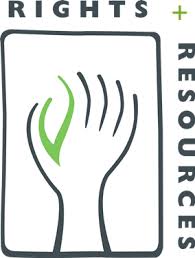Status of Forest Carbon Rights and Implications for Communities (RRI)
Status of Forest Carbon Rights and Implications for Communities, the Carbon Trade, and REDD+ Investments
Rights and Resource Initiative / March 2014
 The briefing looks at the relationship between the implementation of REDD+ projects and land rights in 23 low and middle income countries. It finds that in these countries “REDD+ has not been a catalyst of tenure reforms” even “though most countries with a REDD+ strategy have identified the clarification of tenure as a key component of their approach”.
The briefing looks at the relationship between the implementation of REDD+ projects and land rights in 23 low and middle income countries. It finds that in these countries “REDD+ has not been a catalyst of tenure reforms” even “though most countries with a REDD+ strategy have identified the clarification of tenure as a key component of their approach”.
The briefing focuses a lot on who holds carbon rights in relation carbon trading based on REDD+ projects. “It is clear from these findings that the existing legal frameworks are uncertain and opaque with regard to carbon trading in general, but especially in terms of Indigenous Peoples’ and communities’ rights to engage with, and benefit from, the carbon trade.”
A key point is that if rights are not clearly defined then it’s possible that governments could decide to “claim ownership over all carbon resources”, and so in the process exclude communities. This is because “even countries that recognize Indigenous Peoples’ and local communities’ tenure rights over their lands do not necessarily extend this tenure to include ownership of natural resources such as minerals, oil, timber, and other forest products, which can often remain under State ownership.”
Despite the “legal uncertainty and the absence of clear tenure rights, regulatory safeguards, and grievance mechanisms, communities have already entered carbon trading agreements through pilot REDD+ programs or voluntary carbon markets”. This is proving a problem in some cases because “carbon contracts are complicated legal documents and Indigenous Peoples and local communities often lack the necessary technical, financial, and legal resources to negotiate these contracts to their benefit”.
The briefing concludes:
“As much of the analysis on the status of carbon rights in existing tenure legislation is still preliminary and has not been cross referenced with court rulings–if there have been any–that may clarify rights, it is not possible to fully assess whether forest owners, including Indigenous Peoples, communities, or governments have the right to trade carbon on statutorily recognized community lands.
There are strong international legal precedents arguing that Indigenous Peoples and local communities have rights to trade sequestered carbon in their customarily held forests, even without additional national legislation. But this new research demonstrates that in the vast majority of countries analyzed in this report, it would be extremely difficult for communities to assert those rights in the absence of appropriate safeguards and institutional capacity to claim and fully utilize them. And it is clear that these safeguards and institutions have not yet been codified through national law.”
“The dispossession of local communities and Indigenous Peoples does not have to be an outcome of the emergence of carbon markets.” To avoid this the briefing recommends that 1) their land tenure rights should be recognised, 2) they should participate in “development of national and sub-national legal frameworks related to REDD+.”, and 3) clearly establish them as “legal owners of carbon”.
Read briefing
Read press release (19 March 2014): New Research Warns of Unprecedented “Carbon Grab”; Potentially Worse than Ongoing “Land Grab”—As UN, World Bank prepare for Carbon Trading under REDD+

Leave a Reply